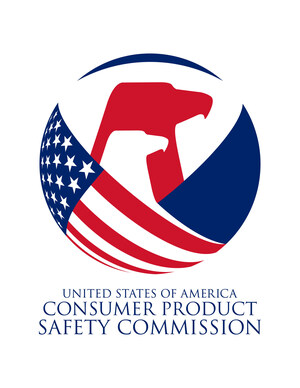Keep Your Family Safe as Tropical Depression Ida Continues its Path of Destruction
https://www.cpsc.gov/Newsroom/News-Releases/2021/Keep-Your-Family-Safe-as-Tropical-Depression-Ida-Continues-its-Path-of-Destruction
WASHINGTON, Aug. 31, 2021 /PRNewswire/ -- As Tropical Depression Ida continues on its path of destruction through the Gulf states and barrels northeast toward the mid-Atlantic region, the U.S. Consumer Product Safety Commission (CPSC) is warning consumers to be prepared for power outages and to take steps now to keep their families safe.
Consumers need to be especially careful during a loss of electrical power. Many use portable generators and other devices for sources of power and heat, exposing themselves to increased risk of carbon monoxide (CO) poisoning and fire. If you plan to use a portable generator in the case of a power loss, follow these tips to prepare before the storm:
- Make sure CO and smoke alarms in your home are working properly, by pressing the test button and replacing batteries, if needed.
- Install battery-operated CO alarms or CO alarms with battery backup in your home, outside separate sleeping areas, and on each floor of your home.
- Check that your generator has had proper maintenance, and read and follow the labels, instructions, and warnings on the generator and in the owner's manual.
Poisonous carbon monoxide from a portable generator can kill you and your family in minutes. CO is an invisible killer. It's colorless and odorless. According to the CDC, more than 400 people die each year in the United States from CO poisoning. CPSC estimates about 78 consumers die each year from CO poisoning caused by portable generators.
The Federal Emergency Management Agency (FEMA) and the Centers for Disease Control and Prevention (CDC) have said that you may need to adjust any preparedness actions, based on the latest health and safety guidelines from the CDC and your local officials during the COVID-19 pandemic.
The storm has hit, and the power is out. Now what? Follow these life-saving tips:
- Operate portable generators outside only, at least 20 feet away from the house; and direct the generator's exhaust away from the home and any other buildings that someone could enter.
- Never operate a portable generator inside a home, garage, basement, crawlspace, shed, or on the porch. Opening doors or windows will not provide enough ventilation to prevent the buildup of lethal levels of CO.
- Never ignore a carbon monoxide alarm when it sounds. Get outside immediately. Then call 911.
- CO poisoning from portable generators can happen so quickly that exposed persons may become unconscious before recognizing the symptoms of nausea, dizziness, or weakness.
Other product safety hazards during hurricane season include:
- Never use charcoal indoors. Burning charcoal in an enclosed space can produce lethal levels of carbon monoxide. Do not cook on a charcoal grill in a garage, even with the door open.
- Use caution when burning candles. Use flashlights instead. If you must use candles, do not burn them on or near anything that can catch fire. Never leave burning candles unattended. Extinguish candles when you leave the room and before sleeping.
- Look for signs that your appliances have gotten wet. Discard unplugged electrical or gas appliances that have been wet, because they pose electric shock and fire hazards. Do not touch electrical or gas appliances that are still plugged in.
- Before using your appliances, have a professional or your gas or electric company evaluate your home and replace all gas control valves, electrical wiring, circuit breakers, and fuses that have been under water.
If you smell or hear gas, do not turn lights on or off, or use electrical equipment, including a phone. Leave your home and contact local gas authorities from outside.
- If you must evacuate, the CDC recommends having additional items on hand, such as cloth face coverings, hand sanitizer, and cleaning products to help prevent the spread of viruses at the shelter. CPSC also reminds consumers to keep all cleaning products and medications out of reach of children, and keep these items in their original child-resistant containers at your evacuation site.
Remember, it only takes one storm to wreak havoc, causing mass destruction and loss of life. Be informed, be prepared, and be safe!
Flood safety b-roll: https://spaces.hightail.com/space/thCBWTX157
For more information, contact Nicolette Nye at [email protected] or at 240-204-4410.
The U.S. Consumer Product Safety Commission (CPSC) is charged with protecting the public from unreasonable risks of injury or death associated with the use of thousands of types of consumer products. Deaths, injuries, and property damage from consumer product incidents cost the nation more than $1 trillion annually. CPSC's work to ensure the safety of consumer products has contributed to a decline in the rate of injuries associated with consumer products over the past 40 years.
Federal law bars any person from selling products subject to a publicly announced voluntary recall by a manufacturer or a mandatory recall ordered by the Commission.
- Visit CPSC.gov.
- Sign up to receive our e-mail alerts .
- Follow us on Facebook , Instagram @USCPSC and Twitter @USCPSC .
- Report a dangerous product or a product-related injury on www.SaferProducts.gov .
- Call CPSC's Hotline at 800-638-2772 (TTY 301-595-7054).
- Contact a media specialist .
####
Release Number: 21-191
SOURCE U.S. Consumer Product Safety Commission

Related Links
WANT YOUR COMPANY'S NEWS FEATURED ON PRNEWSWIRE.COM?
Newsrooms &
Influencers
Digital Media
Outlets
Journalists
Opted In




Share this article